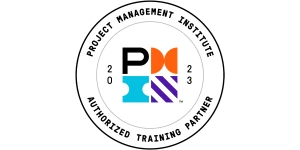Do Kaizen Events help in Non-manufacturing units?
The word Kaizen means continuous improvement. Implementation of a quality process does not mean that there is no need for any further improvements of changes. In fact, most quality processes are reviewed at frequent intervals and findings are then implemented as changed processes. This review process which is geared to bring about a positive change in the total process, when done formally with all concerned personnel, is known as a Kaizen Event.
Kaizen events can be considered as a pro-active step in those organizations where the management aspired to become Six Sigma certified some day and can be considered as a reactive step in those which have a low Sigma score. Just as Six Sigma is now moving into the non-manufacturing sector, Kaizen Events are also becoming part of the non-manufacturing sector.
Getting together business managers in a non-manufacturing unit at a Kaizen event is useful for any company whether Six Sigma certified or not. In fact, some times its easier to get business managers in one location in a non-manufacturing unit as they might be physically located in the same premise. Furthermore, the personnel in a non-manufacturing unit maybe along the same socio-economic line and likely to think alike. Manufacturing unit personnel come from different walks of life and it takes a lot of patience to get everyone to agree to any new process change or development.
Kaizen events can be deemed very important in the non-manufacturing process as many processes within a service organization affect the customer directly. Periodical review and improvement of processes help improve the organization’s performance in an all-round fashion. Kaizen Events in non-manufacturing units not only help in the review of specific processes and review from all business process owners, it also acts as an excellent platform to educate newcomers in the company about the organization’s commitment to quality.
Educating the team members on the processes and re-iterating the effectiveness of the process are excellent by-products of Kaizen Events. However, Kaizen Events cannot be treated as regular meetings to discuss an agenda. These events need to be formulated to deliver maximum value to all attendees. Usually there is a designated person with the organization who leads Kaizen Events. Non-manufacturing units may even decide to rotate the designated person as most business managers are similar in qualifications.
If you plan to lead a Kaizen Event in your non-manufacturing business, you should make the event follow a strong structure. Apart from that, all best practices for meetings should also be adhered to. The meeting should focus on the reviews in hand and the leader’s effort should be not to let the topic deviate from the official agenda. Well timed breaks, discouraging side conversations and documentation of all discussions are some of the standard procedures to be implemented in a Kaizen event.
Preparedness is one of the key ways to succeed in a Kaizen event and that is applicable to both manufacturing and non-manufacturing units. The leader has to be suitably prepared with documents, flow charts and displays to run the entire team over the process in a productive manner. A loosely thought out Kaizen Event can not only be counter-productive, it can also be de-motivating to the entire team.
Kaizen events in non-manufacturing units may help in diagnosing a process but it would still need to be done frequently to be able to keep a tab on the improvements which happen in the process. One of the key differences in Kaizen events between manufacturing and non-manufacturing units is the location of the event. In manufacturing units, the events might be held on the shop floor itself whereas in the case of non-manufacturing events, the meeting can be held in a conference room or board room. In manufacturing units, the leader of the meeting will need to attack the core issues right away whereas in a non-manufacturing unit, there can be some amount of educational or interactive session as well.
Rapid progress in a quality compliance exercise can be achieved with Kaizen Events. In fact, Kaizen events can easily be followed in non-manufacturing units which do not have a major quality and business process improvement exercise underway. The spirit of Kaizen can be implemented in the organization with Kaizen Events and can play a vital long term role in achieving the quality goals of the business managers.
Peter Peterka is President of Lean Six Sigma US. For additional information on Six Sigma Green Belt or other Six Sigma Black Belt programs contact Peter Peterka.
Author: Peter Peterka LinkedIn
Published 09/3/2008
SixSigma.us offers both Live Virtual classes as well as Online Self-Paced training. Most option includes access to the same great Master Black Belt instructors that teach our World Class in-person sessions. Sign-up today!
Virtual Classroom Training Programs Self-Paced Online Training Programs






